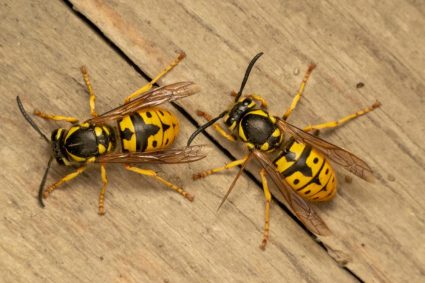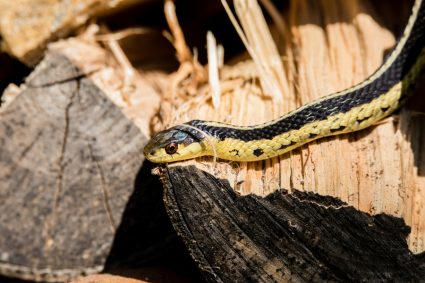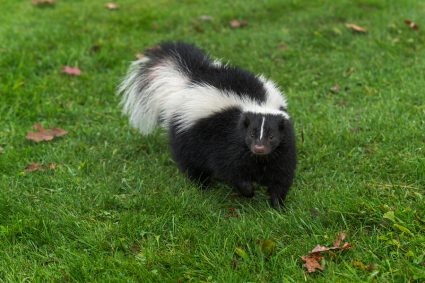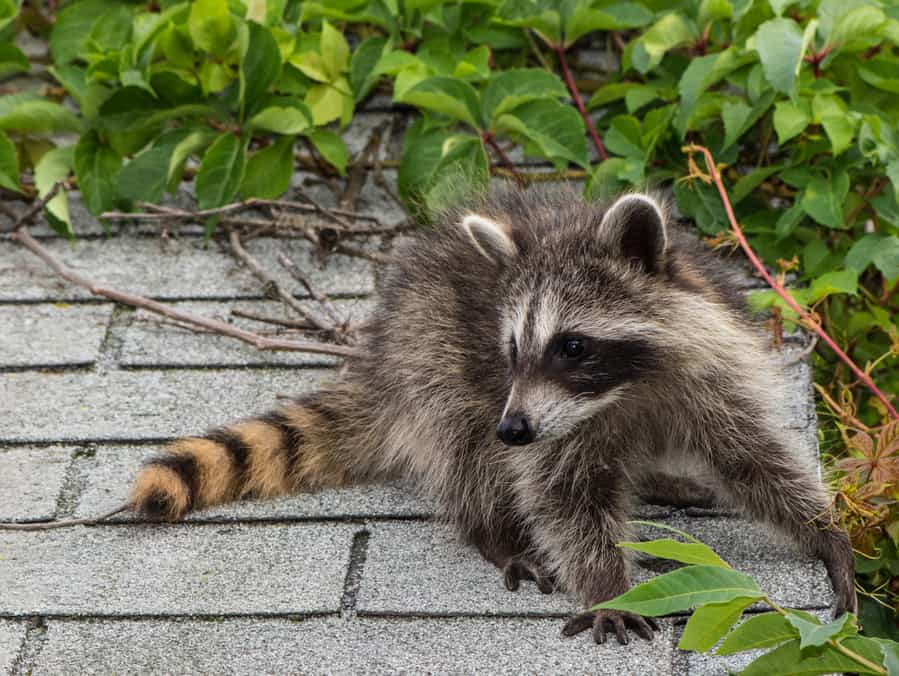
Your roof is a safe nesting place for raccoons and their babies. They will often come for warmth, food, and shelter.
But trust me – you don’t want to give them the pleasure of making your roof their home.
As nocturnal creatures, raccoons are likely to make sounds and movements at night, leaving you with distorted sleep.
Below, we will show you practical ways to keep these comfort-distorting pests away from your roof.
Raccoons are dangerous creatures. They love staying on roofs, and you can’t afford to keep them as pets. So what’s the way out? How do you ward them off your roof?
Below are a few tips that can help:
- Cut off every access to your roof.
- Do away with sweet foods like ripe fruits that can be so inviting.
- Use scents as repellents.
- Ensure your roof is grub free, etc.
In the following sections, we will walk you through seven foolproof strategies to keep raccoons off your roof. Also, we will answer some common queries about handling the infestation of these stubborn pests.
7 Ways To Keep Raccoons off Your Roof
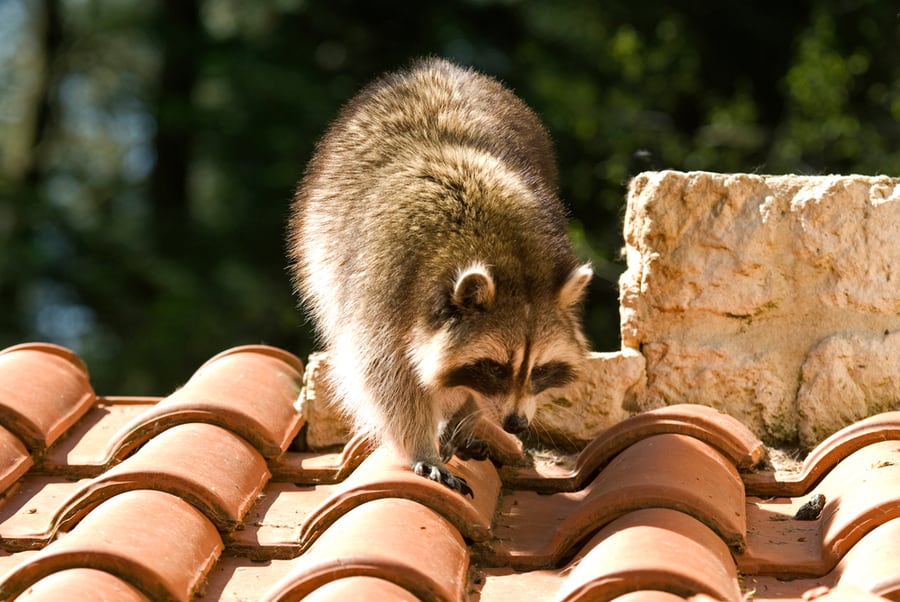
Below, we consider some practical ways to deter raccoons from roofs:
1. Cut Off Every Access to Your Roof

Raccoons love to climb, and they’re good at it. They are tiny and agile, so if you have just a few tree branches dangling over your roof, that will be enough to help them get from the tree to your roof.
It would be best to trim every tree with overlapping branches toward your rooftop to cut off any potential bridge and pathway to your roof.
As you’re trimming your trees, you should check your roof for any damage. See if you can find any rotting wood, holes, or damage that raccoons could exploit. If you can find any, you must patch them up as soon as possible.
Also, place metal sheets around the edges of your roof and drainage pipes for extra security.
2. Don’t Attract Them

Do away with any food that raccoons might be lured to.
Raccoons are attracted to sweet foods, especially ripe fruits such as apples, peaches, and plums.
Ensure to keep the surrounding of your trees clean and pack any fell-down fruit away.
Also, clear out food sources raccoons may frequently visit, including trash and compost piles.
3. Use Scents As Deterrents

Raccoons have a strong sense which they use to find convenient food sources. You can take advantage of this feature by using scents they hate to deter them.
The combination of grounded hot pepper and garlic onion mixture in peppermint oil, should do the trick.
Apply by spraying sporadically on your roof once every two weeks.
4. Ensure Your Roof Is Grub-Free
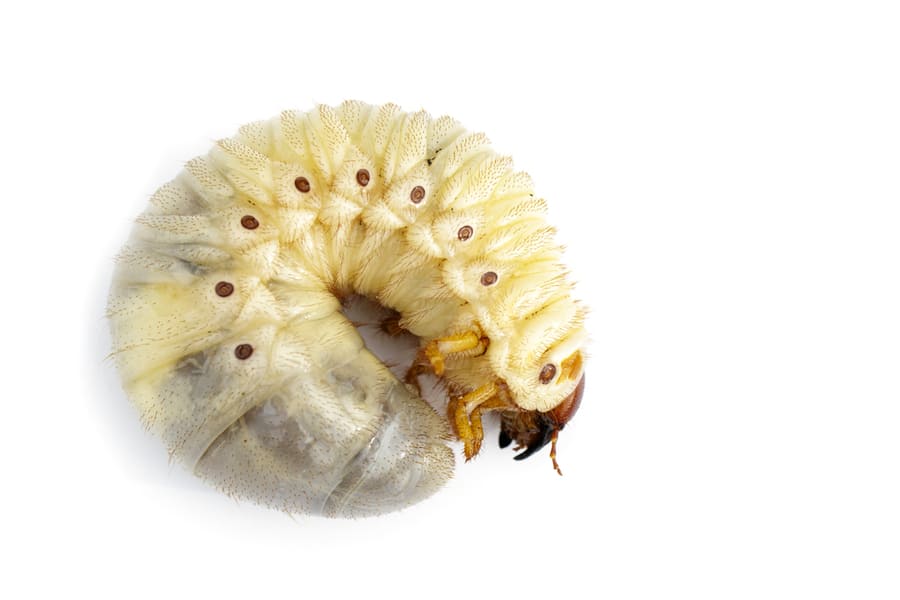
Grubs, alongside other insects, serve as a significant food source for raccoons.
The presence of grub on your roof and other insects increases the likelihood of raccoons being attracted to your roof.
Eliminating these tiny pests can be made possible using insect repellent.
Once your roof is grub-free, raccoons have one less thing to be attracted to.
5. Use Epsom Salt as a Deterrent

Epsom salt is an excellent deterrent for raccoons. Raccoons detest the scent of Epsom salt as it irritates their nasal cavities.
You can use this feature to your advantage by spreading the Epsom salt throughout your roof.
And it would also help to sprinkle around your house if you spot raccoons loitering around.
6. Set Up Cage Traps Around Your Home
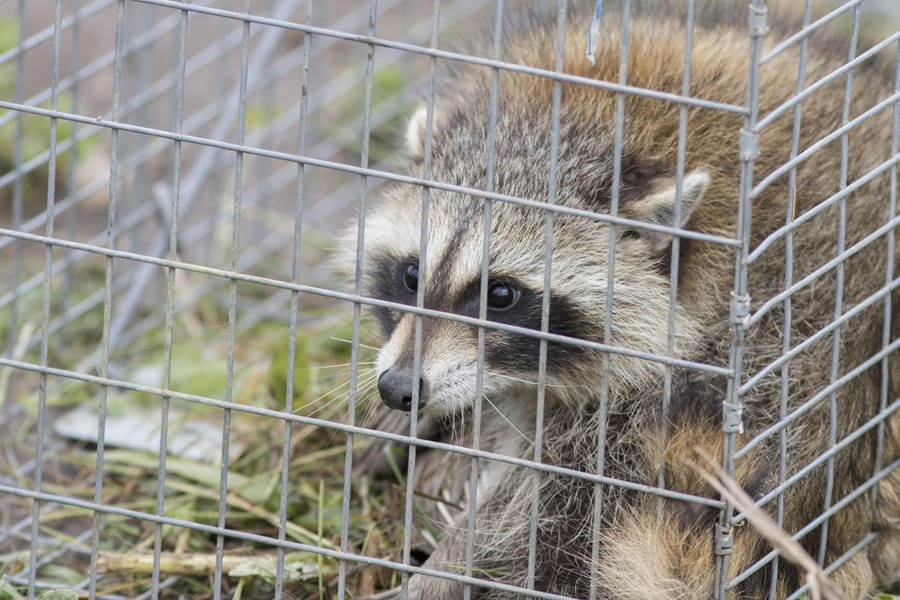
To prevent raccoons from making your roof an abode, set up traps around your home before they can find their way up.
We will take you through three easy steps to set up your trap to secure your catch:
- Purchase a strong regular steel cage that is large enough to hold raccoons.
- Set the trap on a flat, stable surface where you believe raccoons might be loitering. Ensure the trap is well erected, not on a sloppy surface, and set correctly.
- Bait the trap with marshmallows, bread, or bacon. You can lead some of the bait up to the trap within a one-meter distance. Then put some inside the trap and wait for some hours.
Once caught, relocate the animal far away to an approved area.
7. Install Baffles in Your Downspouts
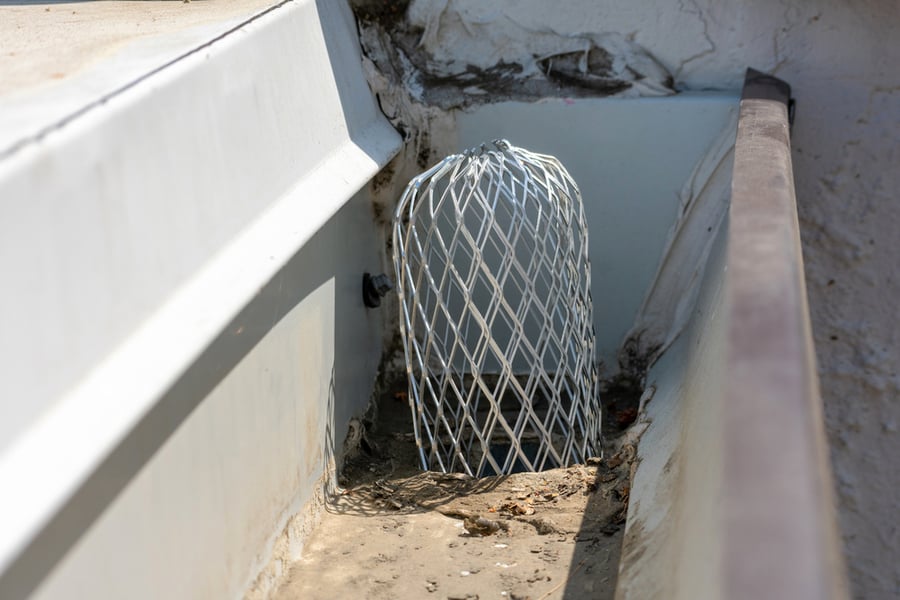
Raccoons are often drawn to water sources, particularly in the downspouts.
They may climb through your downspouts to gain access to your roof. You can install baffles at the end of your downspouts to guard against them.
A baffle is installed at the end of a downspout to prevent raccoons from poking themselves in it. It can be made of metals, wood, concrete, or plastic.
Conclusion
Raccoons are found throughout North America, the United States Of America, and some parts of Africa.
If you live in any of these locations, you are prone to raccoon infestation and must act fast to prevent/resolve them.
Above, we outlined seven strategies we know work. To recap, you can install baffles in your downspouts and set up cage traps around your house.
Other deterrents you can use are Epsom salt, garlic, grounded hot pepper, peppermint oil, etc.
Apply them and save yourself the stress of sharing your home with these critters.
Frequently Asked Questions
What Attracts Raccoons?
Raccoons are attracted to sweet foods, especially ripe fruits such as apples, peaches, and plums. They also feed on apricots, cherries, mulberries, and trash cans.
What Are Raccoons Afraid Of?
Raccoons stay away from animals that are their natural predators. These natural predators include bobcats, coyotes, and horned owls.
You may have picked up a pattern here. Raccoon predators are typically large. They need to be large as raccoons to be formidable targets.
What To Do if a Raccoon Is Near You?
It is recommended that you avoid eye contact and slowly move away into a safe place until the animal passes. Make yourself appear larger while doing this, but do not attack the raccoon unless you are attacked first.



